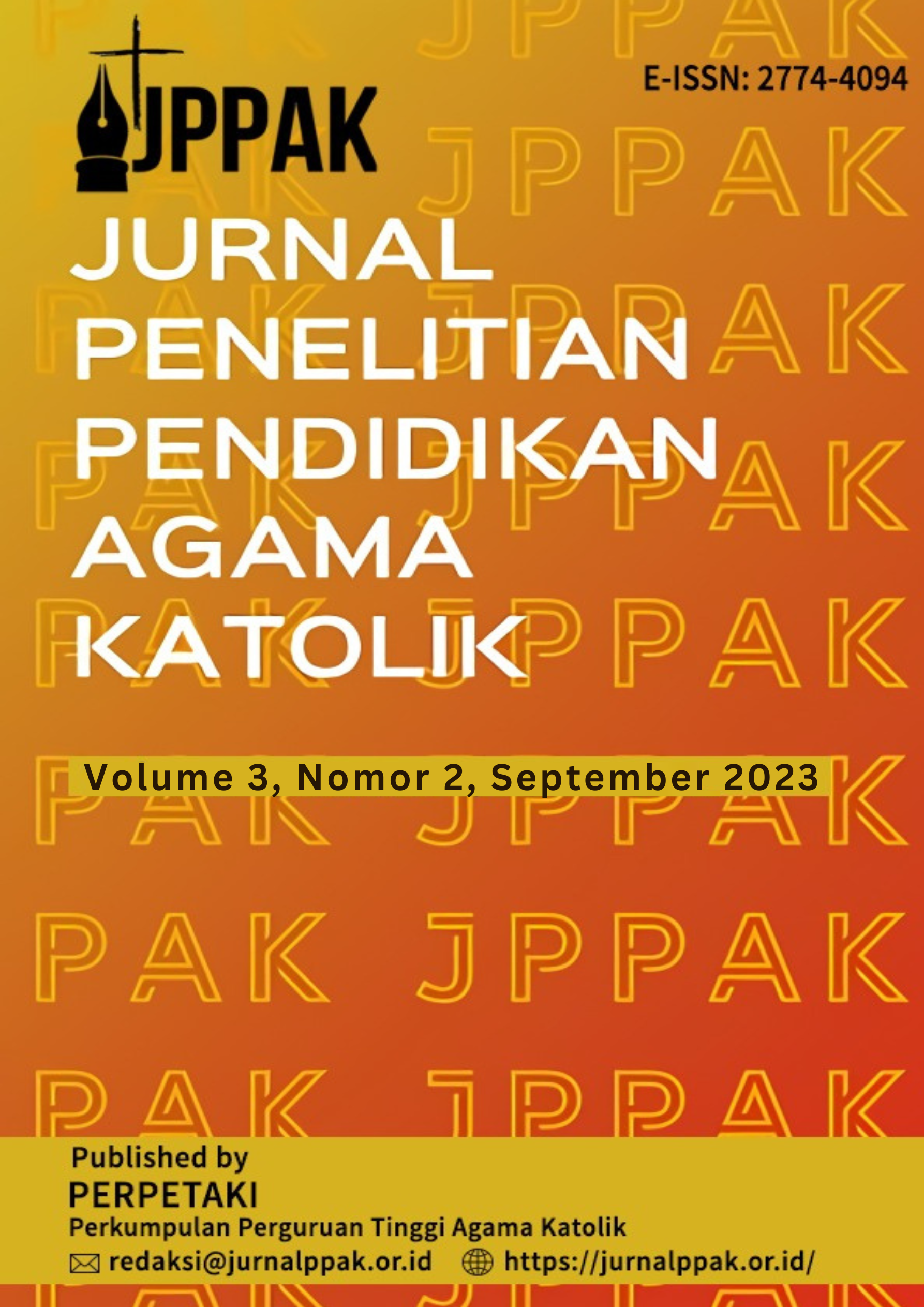Peningkatan Kinerja Guru Pendidikan Agama Katolik melalui Pelaksanaan Supervisi Akademik oleh Kepala Sekolah di SD Swasta Katolik Delitua
DOI:
https://doi.org/10.52110/jppak.v3i2.105Keywords:
Academic Supervision; Teacher Performance; HeadmasterAbstract
This research was prompted by concerns regarding the superficial nature of academic supervision conducted by principals, which in turn affected the quality of teachers' instructional performance. Consequently, the objective of this study was to examine the process of implementing academic supervision by school principals and assess the extent to which more effective supervision could enhance the performance of Catholic Religious Education teachers. The qualitative approach was employed as the research methodology. The findings indicate that the implementation of robust academic supervision by school principals can lead to improvements in teacher performance, particularly in the areas of lesson planning, instructional delivery, and assessment. Moreover, the study uncovered aspects that were not captured by the predefined assessment instruments used during supervision observations. In these instances, the principal guided teachers in identifying their own areas of improvement and provided support to address these shortcomings. Additionally, the study revealed that effective teacher performance was characterized by the promotion of critical and creative thinking among students, thus enhancing the overall quality of classroom instruction. In conclusion, the study highlights the positive impact of academic supervision conducted by principals on teachers. Through this process, teachers are encouraged to enhance their preparation and performance, resulting in notable improvements.
Downloads
##submission.downloads##
Submitted
Published
How to Cite
Issue
Section
License
Copyright (c) 2023 Sherly Yasinta Manalu, Johannes Sohirimon Lumbanbatu

This work is licensed under a Creative Commons Attribution-ShareAlike 4.0 International License.
Copyright Notice and Permissions
Jurnal Penelitian Pendidikan Agama Katolik offers immediate open access to all its content on the principle to make researches freely available to the public, especially to the scholars, to support greater global exchanges of knowledge. This journal encourages all scholarly authors to allow their research openly available, free access and without time restrictions.
All articles published Open Access will be immediately and permanently free for everyone to read and download. Under the CC BY-SA 4.0 license, authors retain ownership of the copyright for their article, however authors grant others permission to use the content of publications in Jurnal Penelitian Pendidikan Agama Katolik (JPPAK) in whole or in part provided that the original work is properly cited. Users (redistributors) of Jurnal Penelitian Pendidikan Agama Katolik (JPPAK) are required to cite the original source by including at least: the full title of the article, the author's or authors' full name(s), JPPAK as the initial source of publication, year of publication and volume number using a propriate citing method.
Copyright encompasses exclusive rights to reproduce and deliver the article in all form and media, including reprints, photographs, microfilms and any other similar reproductions, as well as translations. The reproduction of any part of this journal, its storage in databases and its transmission by any form or media, such as electronic, electrostatic and mechanical copies, photocopies, recordings, magnetic media is prohibited without consent of Jurnal Penelitian Pendidikan Agama Katolik (JPPAK).
Jurnal Penelitian Pendidikan Agama Katolik (JPPAK) is licensed under a Creative Commons Attribution Share-Alike 4.0 International. (CC BY-SA 4.0)
Authors who publish with Jurnal Penelitian Pendidikan Agama Katolik (JPPAK) agree to the following terms:
- Authors retain copyright and grant the journal right of first publication with the work simultaneously licensed under a Creative Commons Attribution Share-Alike 4.0 International (CC BY-SA 4.0) license that allows others to share the work with an acknowledgement of the work's authorship and initial publication in this journal.
- Authors are able to enter into separate, additional contractual arrangements for the non-exclusive distribution of the journal's published version of the work (e.g., post it to an institutional repository or publish it in a book), with an acknowledgement of its initial publication in this journal.
- Authors are permitted and encouraged to post their work online (e.g., in institutional repositories or on their website) after the publication on JPPAK, as long as it not published on other OJS for it will be treated as plagiarism by plagiarism checker apps. It can lead to productive exchanges, as well as earlier and greater citation of published work (See The Effect of Open Access).












